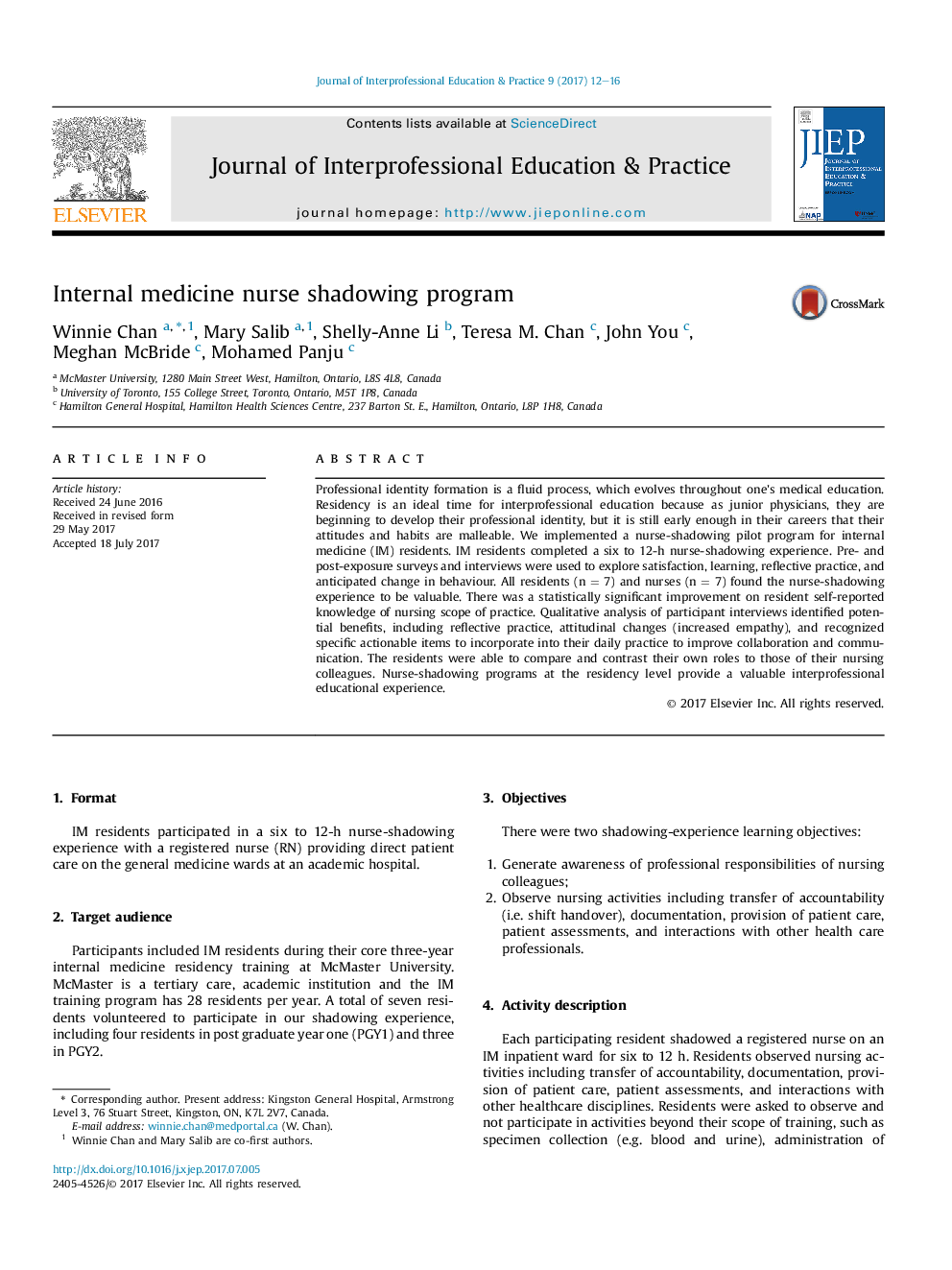| Article ID | Journal | Published Year | Pages | File Type |
|---|---|---|---|---|
| 5569380 | Journal of Interprofessional Education & Practice | 2017 | 5 Pages |
Abstract
Professional identity formation is a fluid process, which evolves throughout one's medical education. Residency is an ideal time for interprofessional education because as junior physicians, they are beginning to develop their professional identity, but it is still early enough in their careers that their attitudes and habits are malleable. We implemented a nurse-shadowing pilot program for internal medicine (IM) residents. IM residents completed a six to 12-h nurse-shadowing experience. Pre- and post-exposure surveys and interviews were used to explore satisfaction, learning, reflective practice, and anticipated change in behaviour. All residents (n = 7) and nurses (n = 7) found the nurse-shadowing experience to be valuable. There was a statistically significant improvement on resident self-reported knowledge of nursing scope of practice. Qualitative analysis of participant interviews identified potential benefits, including reflective practice, attitudinal changes (increased empathy), and recognized specific actionable items to incorporate into their daily practice to improve collaboration and communication. The residents were able to compare and contrast their own roles to those of their nursing colleagues. Nurse-shadowing programs at the residency level provide a valuable interprofessional educational experience.
Related Topics
Health Sciences
Medicine and Dentistry
Public Health and Health Policy
Authors
Winnie Chan, Mary Salib, Shelly-Anne Li, Teresa M. Chan, John You, Meghan McBride, Mohamed Panju,
